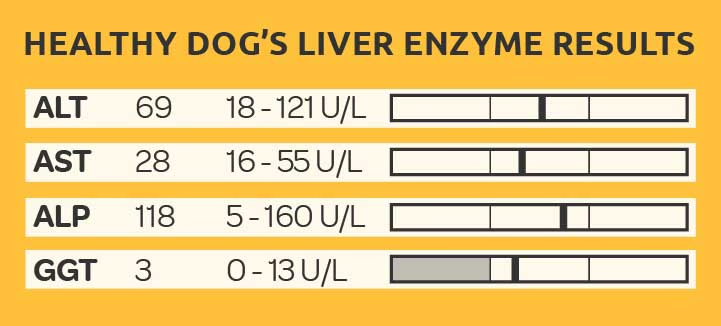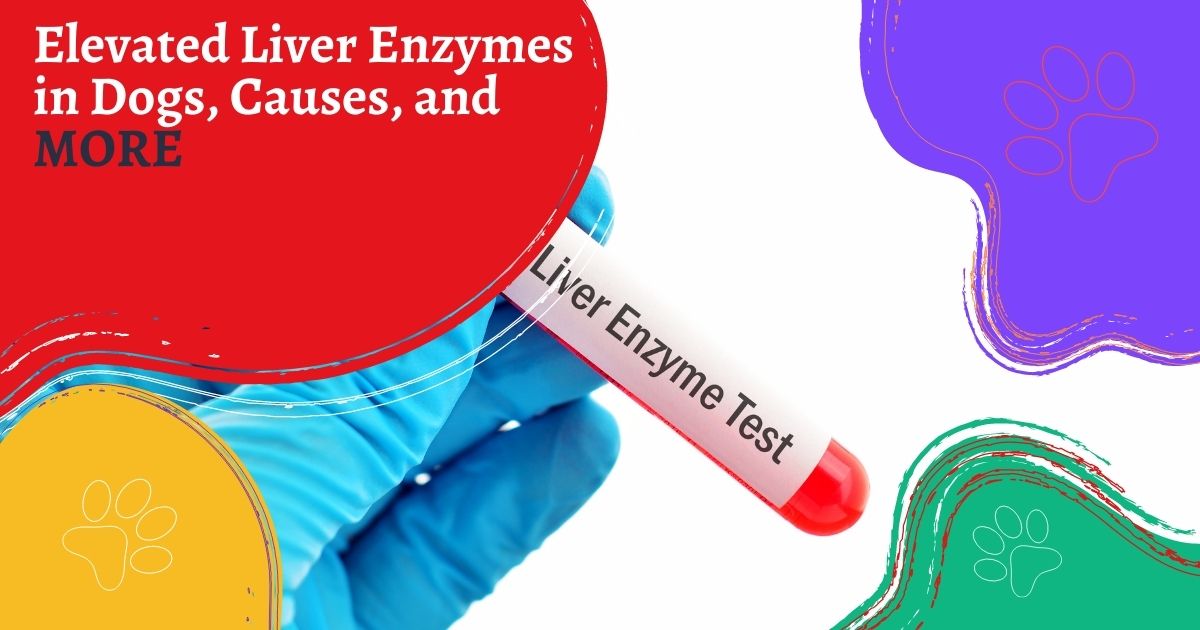My Dogs Liver Enzymes Are High

The news that your dog's liver enzymes are elevated can be unsettling, triggering immediate concern and a flurry of questions. Is it serious? What caused this? What can be done? These are natural reactions when facing a potentially significant health issue in a beloved pet.
This article aims to provide a comprehensive overview of elevated liver enzymes in dogs, explaining what they signify, exploring potential causes ranging from benign to severe, outlining common diagnostic procedures, detailing treatment options, and offering guidance on managing the condition to ensure your furry companion enjoys a long and healthy life. Navigating this health challenge requires understanding, collaboration with your veterinarian, and informed decision-making.
Understanding Liver Enzymes
Liver enzymes are proteins that facilitate various chemical reactions within the liver. These enzymes include Alanine Aminotransferase (ALT), Aspartate Aminotransferase (AST), Alkaline Phosphatase (ALP), and Gamma-Glutamyl Transferase (GGT). When the liver is damaged or inflamed, these enzymes leak into the bloodstream, resulting in elevated levels detected during blood tests.
It's crucial to understand that elevated liver enzymes are not a disease themselves, but rather an indicator of underlying liver problems or other systemic issues. A single elevated enzyme level may not be cause for alarm, but persistent or significantly high levels warrant further investigation.
Common Liver Enzymes and Their Significance
ALT (Alanine Aminotransferase): Primarily found in the liver, elevated ALT is often a specific indicator of liver cell damage. AST (Aspartate Aminotransferase): While also present in the liver, AST is found in other tissues like muscle and heart, making it a less specific indicator of liver damage than ALT. Elevated AST could point to issues beyond the liver.
ALP (Alkaline Phosphatase): Elevated ALP can indicate liver or bone disease. It's also important to consider that in young, growing dogs, ALP levels are naturally higher due to bone development. GGT (Gamma-Glutamyl Transferase): GGT is often elevated in cases of bile duct obstruction or certain medications. It's a useful marker for liver-related issues, particularly when combined with other enzyme results.
Potential Causes of Elevated Liver Enzymes
The list of potential causes for elevated liver enzymes in dogs is extensive. Causes can range from relatively benign to life-threatening.
Medications and Toxins: Certain medications, such as corticosteroids, NSAIDs, and some antibiotics, can impact liver function and elevate enzyme levels. Exposure to toxins, including certain plants, chemicals, and even molds, can also lead to liver damage.
Infections: Bacterial, viral, and parasitic infections can affect the liver. Leptospirosis, a bacterial infection transmitted through contaminated water, is a well-known cause of liver disease in dogs. Liver Diseases: Conditions like hepatitis (inflammation of the liver), cirrhosis (scarring of the liver), and liver tumors can all lead to elevated liver enzymes.
Metabolic Diseases: Conditions such as Cushing's disease (hyperadrenocorticism) and diabetes mellitus can indirectly affect liver function and result in elevated enzyme levels. Other Health Problems: In some cases, problems originating in other organs, such as the pancreas or gallbladder, can impact the liver and elevate enzyme levels. For example, pancreatitis and gallbladder issues frequently affect liver function.
Breed Predisposition: Certain dog breeds are predisposed to specific liver diseases. For example, Bedlington Terriers are prone to copper storage disease, while Doberman Pinschers are more likely to develop chronic active hepatitis. Genetic factors can play a significant role.
Diagnosis and Evaluation
Diagnosing the underlying cause of elevated liver enzymes requires a thorough and systematic approach. Your veterinarian will begin with a complete physical examination and a detailed history of your dog's health, diet, and medications.
Blood Tests: A comprehensive blood panel, including a complete blood count (CBC) and a biochemical profile, is essential. This provides information about liver enzyme levels, as well as other indicators of organ function and overall health. Urinalysis: A urinalysis helps assess kidney function and can provide clues about underlying metabolic disorders or infections.
Imaging: Abdominal ultrasound and radiographs (X-rays) can visualize the liver and other abdominal organs. These imaging techniques can help identify tumors, abnormalities in liver structure, or blockages in the bile ducts. Liver Biopsy: In some cases, a liver biopsy is necessary to obtain a definitive diagnosis. A biopsy involves taking a small sample of liver tissue for microscopic examination. This can determine the extent of liver damage and identify the specific cause of the problem.
Treatment Options
Treatment for elevated liver enzymes depends entirely on the underlying cause. There is no one-size-fits-all approach. The primary goal is to address the root of the problem and support liver function.
Medications: Depending on the diagnosis, medications may include antibiotics for infections, anti-inflammatory drugs for hepatitis, or specific medications to manage conditions like Cushing's disease. Dietary Management: A liver-friendly diet that is low in protein and fat and contains specific nutrients to support liver function is often recommended. Prescription diets formulated for liver health are readily available.
Supplements: Certain supplements, such as milk thistle (silymarin) and SAMe (S-Adenosylmethionine), are believed to have liver-protective properties. However, it's essential to consult with your veterinarian before administering any supplements. Surgery: In cases of liver tumors or bile duct obstructions, surgery may be necessary.
Long-Term Management and Prognosis
The long-term management of elevated liver enzymes depends on the underlying cause and the severity of the liver damage. Regular monitoring is crucial. This typically involves periodic blood tests to monitor liver enzyme levels and assess the effectiveness of treatment. The prognosis varies greatly depending on the underlying cause. Some conditions, like mild drug-induced liver damage, may resolve completely with appropriate treatment.
Other conditions, such as chronic active hepatitis, may require lifelong management. Early detection and prompt treatment are critical for improving the outcome. Maintaining a healthy lifestyle for your dog is essential. This includes a balanced diet, regular exercise, and avoiding exposure to toxins.
Elevated liver enzymes in dogs can be a concerning finding, but with proper diagnosis and treatment, many dogs can live long and healthy lives. Open communication with your veterinarian is key to navigating this health challenge and ensuring the best possible outcome for your beloved companion. Remember, early detection is always best.


:max_bytes(150000):strip_icc()/liver-disease-in-dogs-4142260-v4-d3ae90bcd84c4abea1b4f7a07b1b237d.png)


.png)












